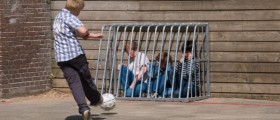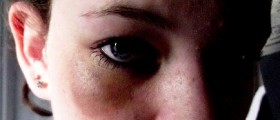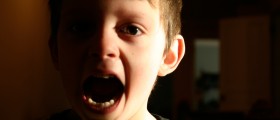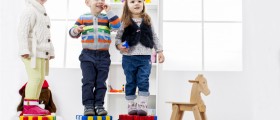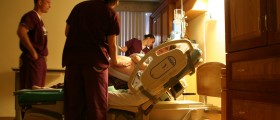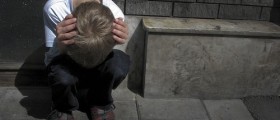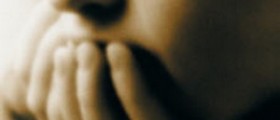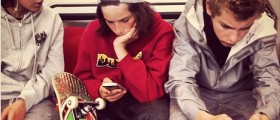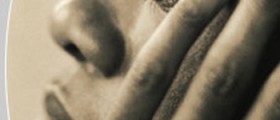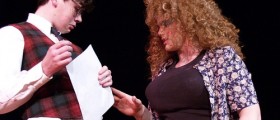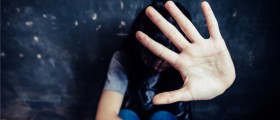is masterbation by a two year old girl a sign of sexual abuse or is this normal?
Loading...
Celebrity
413 posts
Are you talking about girl touching her genitals? It is not masturbation! All children do it! It is interesting for them, it is not masturbation because they don’t do it for sexual pleasure! Most boys have erections at the age of three, maybe even sooner and they take out that penises and show them around. It is normal! Did you maybe notice any other signs with the girl you are talking about?
Loading...
I wish I knew the answer to that question too. My granddaughter, whom I raise, masterbates. She puts blankets or stuffed animals between her legs and starts the motion, there is no doubt what she is doing. I had to get a different car seat because she would do it every time I hooked the fastener between her legs. This has been going on since she was barely two.
Loading...
My son has been making the rocking motion since he was about 4 months old especially when I put him down to sleep and he was all comfortable and wrapped in his blanket it's like something he would sometimes do when he was feeling very secure and happy. He is 14 months now and sometimes he does it while your holding him. My mom asks him if he's doing hiney exercises! LOL. He also grabs himself in the tub or when I am changing him. I think it's just a normal thing. He doesn't know what he's doing.
Loading...
It is normal development in children, its how they klnow themselves and often distinguish boy and girl.
As the subject of sexual abuse I will also put the signs of sexual abuse here by what kidscape says ( this is so you can distinguish the difference)
Child Abuse - Signs and Symptoms:
Although these signs do not necessarily indicate that a child has been abused, they may help adults recognise that something is wrong. The possibility of abuse should be investigated if a child shows a number of these symptoms, or any of them to a marked degree:
Sexual Abuse
Being overly affectionate or knowledgeable in a sexual way inappropriate to the child's age
Medical problems such as chronic itching, pain in the genitals, venereal diseases
Other extreme reactions, such as depression, self-mutilation, suicide attempts, running away, overdoses, anorexia
Personality changes such as becoming insecure or clinging
Regressing to younger behaviour patterns such as thumb sucking or bringing out discarded cuddly toys
Sudden loss of appetite or compulsive eating
Being isolated or withdrawn
Inability to concentrate
Lack of trust or fear of someone they know well, such as not wanting to be alone with a babysitter or child minder
Starting to wet again, day or night/nightmares
Become worried about clothing being removed
Suddenly drawing sexually explicit pictures
Trying to be 'ultra-good' or perfect; overreacting to criticism
Physical Abuse
Unexplained recurrent injuries or burns
Improbable excuses or refusal to explain injuries
Wearing clothes to cover injuries, even in hot weather
Refusal to undress for gym
Bald patches
Chronic running away
Fear of medical help or examination
Self-destructive tendencies
Aggression towards others
Fear of physical contact - shrinking back if touched
Admitting that they are punished, but the punishment is excessive (such as a child being beaten every night to 'make him study')
Fear of suspected abuser being contacted
Emotional Abuse
Physical, mental and emotional development lags
Sudden speech disorders
Continual self-depreciation ('I'm stupid, ugly, worthless, etc')
Overreaction to mistakes
Extreme fear of any new situation
Inappropriate response to pain ('I deserve this')
Neurotic behaviour (rocking, hair twisting, self-mutilation)
Extremes of passivity or aggression
Neglect
Constant hunger
Poor personal hygiene
Constant tiredness
Poor state of clothing
Emaciation
Untreated medical problems
No social relationships
Compulsive scavenging
Destructive tendencies
Note: A child may be subjected to a combination of different kinds of abuse.
It is also possible that a child may show no outward signs and hide what is happening from everyone
Suspected Abuse
If you suspect that a child is being abused, seek advice from the police or social services. It is preferable that you identify yourself and give details. However, if you feel unsure and would like to discuss the situation, ring the National Society for the Prevention of Cruelty to Children (NSPCC) Helpline, or the Royal Scottish Society for the Prevention of Cruelty to Children, or the Irish Society for the Prevention of Cruelty to Children. You can speak to these organisations (and the police and social services) anonymously. The numbers are given in this website.
Knowing how damaging abuse is to children, it is up to the adults around them to take responsibility for stopping it.
If a child tells you about abuse:
Stay calm and be reassuring
Find a quiet place to talk
Believe in what you are being told
Listen, but do no press for information
Say that you are glad that the child told you
If it will help the child to cope. say that the abuser has a problem
Say that you will do your best to protect and support the child
If necessary, seek medical help and contact the police or social services
If your child has told another adult, such as a teacher or school nurse, contact them. Their advice may make it easier to help your child
Determine if this incident may affect how your child reacts at school. It may be advisable to liaise with you child's teacher, school nurse or headteacher
Acknowledge that your child may have angry, sad or even guilty feelings about what happened, but stress that the abuse was not the child's fault. Acknowledge that you will probably need help dealing with your own feelings
Seek counselling for yourself and your child through the organisations listed on the website Where to Get Help
You may consider using the school as a resource, as the staff should have a network of agencies they work with, and be able to give you advice.
You can contact official agencies or self-help groups. If you are concerned about what action may be taken, ask before you proceed.
The following can be contacted through your telephone directory:
Police
Social Services
Samaritans 0345 909090
National Society for the Prevention of Cruelty to Children (NSPCC) in England, Wales and Northern Ireland Freephone 0800 800 500
Children First 0131 337 8539
Irish Society for the Prevention of Cruelty to Children (ISPCC) 00 353 742 9744
ChildLine 0800 1111
Parentline 0808 800 2222
Hope this helps,
kee
xxx
As the subject of sexual abuse I will also put the signs of sexual abuse here by what kidscape says ( this is so you can distinguish the difference)
Child Abuse - Signs and Symptoms:
Although these signs do not necessarily indicate that a child has been abused, they may help adults recognise that something is wrong. The possibility of abuse should be investigated if a child shows a number of these symptoms, or any of them to a marked degree:
Sexual Abuse
Being overly affectionate or knowledgeable in a sexual way inappropriate to the child's age
Medical problems such as chronic itching, pain in the genitals, venereal diseases
Other extreme reactions, such as depression, self-mutilation, suicide attempts, running away, overdoses, anorexia
Personality changes such as becoming insecure or clinging
Regressing to younger behaviour patterns such as thumb sucking or bringing out discarded cuddly toys
Sudden loss of appetite or compulsive eating
Being isolated or withdrawn
Inability to concentrate
Lack of trust or fear of someone they know well, such as not wanting to be alone with a babysitter or child minder
Starting to wet again, day or night/nightmares
Become worried about clothing being removed
Suddenly drawing sexually explicit pictures
Trying to be 'ultra-good' or perfect; overreacting to criticism
Physical Abuse
Unexplained recurrent injuries or burns
Improbable excuses or refusal to explain injuries
Wearing clothes to cover injuries, even in hot weather
Refusal to undress for gym
Bald patches
Chronic running away
Fear of medical help or examination
Self-destructive tendencies
Aggression towards others
Fear of physical contact - shrinking back if touched
Admitting that they are punished, but the punishment is excessive (such as a child being beaten every night to 'make him study')
Fear of suspected abuser being contacted
Emotional Abuse
Physical, mental and emotional development lags
Sudden speech disorders
Continual self-depreciation ('I'm stupid, ugly, worthless, etc')
Overreaction to mistakes
Extreme fear of any new situation
Inappropriate response to pain ('I deserve this')
Neurotic behaviour (rocking, hair twisting, self-mutilation)
Extremes of passivity or aggression
Neglect
Constant hunger
Poor personal hygiene
Constant tiredness
Poor state of clothing
Emaciation
Untreated medical problems
No social relationships
Compulsive scavenging
Destructive tendencies
Note: A child may be subjected to a combination of different kinds of abuse.
It is also possible that a child may show no outward signs and hide what is happening from everyone
Suspected Abuse
If you suspect that a child is being abused, seek advice from the police or social services. It is preferable that you identify yourself and give details. However, if you feel unsure and would like to discuss the situation, ring the National Society for the Prevention of Cruelty to Children (NSPCC) Helpline, or the Royal Scottish Society for the Prevention of Cruelty to Children, or the Irish Society for the Prevention of Cruelty to Children. You can speak to these organisations (and the police and social services) anonymously. The numbers are given in this website.
Knowing how damaging abuse is to children, it is up to the adults around them to take responsibility for stopping it.
If a child tells you about abuse:
Stay calm and be reassuring
Find a quiet place to talk
Believe in what you are being told
Listen, but do no press for information
Say that you are glad that the child told you
If it will help the child to cope. say that the abuser has a problem
Say that you will do your best to protect and support the child
If necessary, seek medical help and contact the police or social services
If your child has told another adult, such as a teacher or school nurse, contact them. Their advice may make it easier to help your child
Determine if this incident may affect how your child reacts at school. It may be advisable to liaise with you child's teacher, school nurse or headteacher
Acknowledge that your child may have angry, sad or even guilty feelings about what happened, but stress that the abuse was not the child's fault. Acknowledge that you will probably need help dealing with your own feelings
Seek counselling for yourself and your child through the organisations listed on the website Where to Get Help
You may consider using the school as a resource, as the staff should have a network of agencies they work with, and be able to give you advice.
You can contact official agencies or self-help groups. If you are concerned about what action may be taken, ask before you proceed.
The following can be contacted through your telephone directory:
Police
Social Services
Samaritans 0345 909090
National Society for the Prevention of Cruelty to Children (NSPCC) in England, Wales and Northern Ireland Freephone 0800 800 500
Children First 0131 337 8539
Irish Society for the Prevention of Cruelty to Children (ISPCC) 00 353 742 9744
ChildLine 0800 1111
Parentline 0808 800 2222
Hope this helps,
kee
xxx
Loading...
Ok, if you mean just touching themselves then that is normal. She is two, even if she had been abused , which I highly dought, she would not know what it meant. As the person said before this is normal!!!!!!! Don't freak out about that......
Loading...
My daughter is 2.5. She started sitting on her baby dolls faces saying 'lick my peepee baby'
When I was babysitting my neighbors boy who's 4. I was cooking lunch and checked on them. She had his pants down with his penis in her mouth.
She's constantly rubbing her vagina no matter where we are. She's potty trained so when she's in dresses she will pull her panties aside to rub her vagina. She's done it in stores. At the park. At church. Everywhere. She will tell me she loves getting her peepee licked. I have to be very careful with her around other kids. Especially turned on little boys because they will take full advantage of my hypersexual toddler.
Her father and stepmother abused her. They are now in prison. And I'm left with a very turned on toddler
When I was babysitting my neighbors boy who's 4. I was cooking lunch and checked on them. She had his pants down with his penis in her mouth.
She's constantly rubbing her vagina no matter where we are. She's potty trained so when she's in dresses she will pull her panties aside to rub her vagina. She's done it in stores. At the park. At church. Everywhere. She will tell me she loves getting her peepee licked. I have to be very careful with her around other kids. Especially turned on little boys because they will take full advantage of my hypersexual toddler.
Her father and stepmother abused her. They are now in prison. And I'm left with a very turned on toddler
Loading...




